Alot has changed over the 105 year history of J M Baxi, but the one thing that has stayed the same is our sense of a higher purpose, which is driving our passion for sustainability.
We are really proud of the investments that we are making to ensure that we are looking around the corner by solving not only today’s sustainability challenges but also tomorrow’s challenges too.
First, we want to reduce the emissions associated with the generation of energy by heavily investing in solar projects at our terminals.
We also want to choose the types of energy and fuel we use more wisely, so that we can minimise the amount of carbon released by all the equipment at our terminals. Thus, we are electrifying all our equipment in a phased manner. In the longer term, we will also consider using hydrogen as a fuel.
Visakha Container Terminal is an ideal gateway for container traffic to and from India’s east coast. With its well- established road and rail connectivity, it has become a regional hub for trans- shipments.
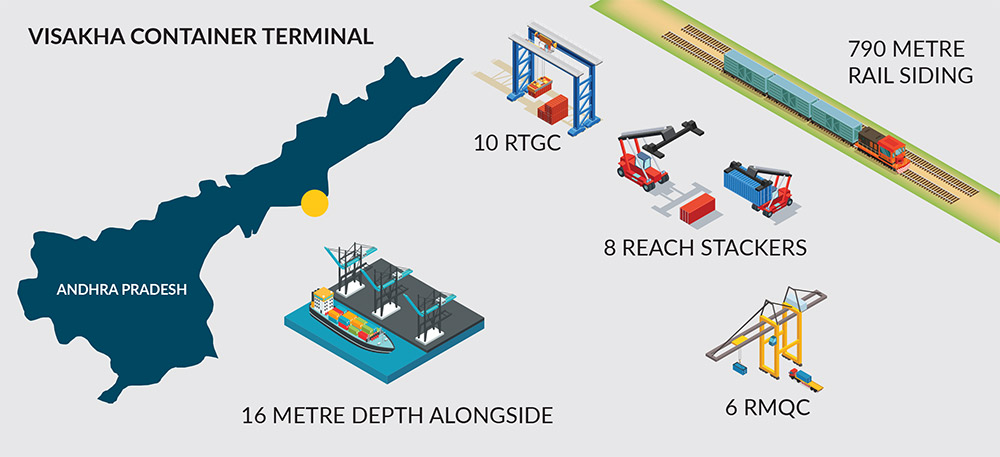
- Electrification Of Seven Diesel Rubber-Tyred Gantry Cranes
As we move towards becoming more sustainable, it is critical that we innovate our technology to make the large machines more efficient.
It is estimated that for these seven RTGCs, switching the fuel from diesel to electric will reduce CO2 emissions by 283 metric tonnes (MT) per RTGC by the end of 2024.
In addition to the electrification of the RTGCs, VCTPL has also installed nine brand-new electric-powered RTGCs at its second terminal.
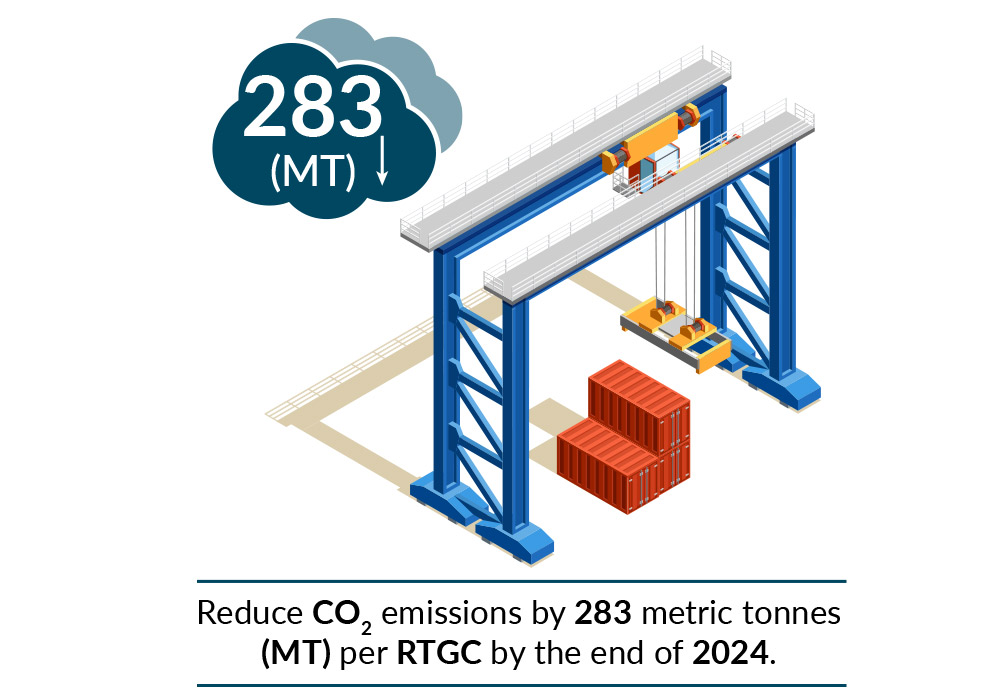
| YTD 2021: Jan–YTD 2021: Jan–Sep 2021 | Total CO2 emissions YTD 2021 (MT) | CO2 emissions saved after RTGC electrification in 3 years (MT) | |
|---|---|---|---|
| Electricity consumed YTD 2021 (kWh) | 7,17,390 | 5083 | 1980 |
| Fuel consumed YTD 2021 (kL) | 9,33,572 | 2500 | |
- Investing In Solar
Visakha Container Terminal has signed a contract with Vibrant Energy to procure solar power for a period of ten years. This energy partnership between VCTPL and Vibrant Energy will supply 36 lakh kWh of solar energy to the terminal per year, with a peak capacity of 10 MW.
Between January 2021 and August 2021, it supplied 7.85 lakh kWh to the terminal. This solar partnership has had a critical role in replacing fossil fuel usage within the terminal with solar power, thus reducing carbon emissions at the point of power generation. On average, CO2 emissions are reduced by 217 MT each month. Moreover, the solar panels installed at the parking areas in the terminals reduced CO2 emissions by 4.1 MT between April 2021 and August 2021. In 2020, the amount of solar power consumed compared to the total power consumed at the terminal was 20%.
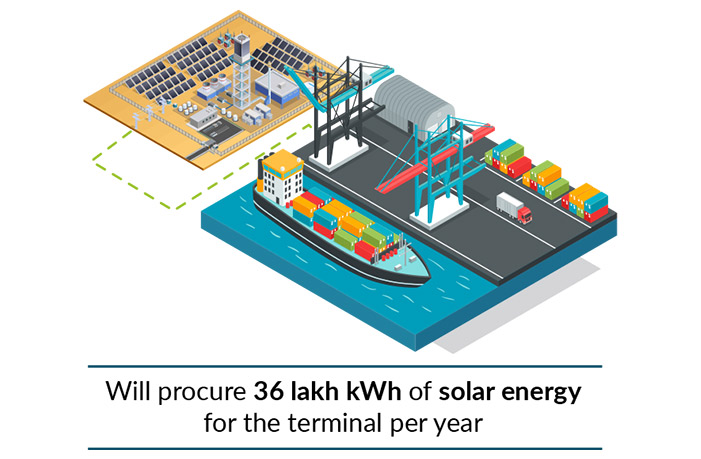
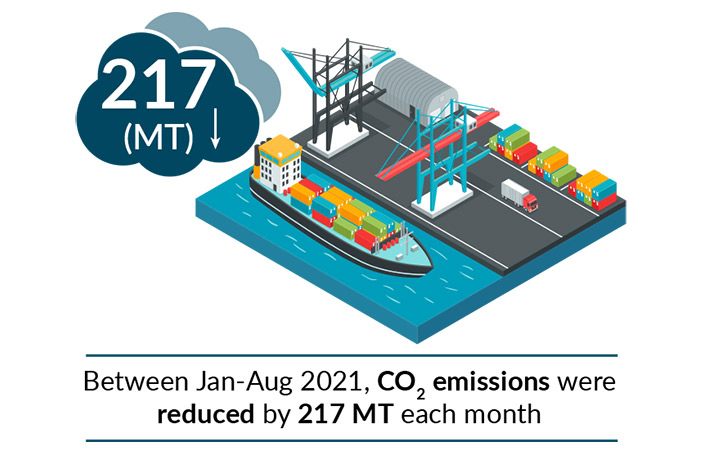
These are the drivers of the organisation’s long-term goals of reaching zero carbon emissions and achieving climate change resilience for a safe, secure and sustainable future.
Lean and sustainability go hand in glove. Lean is all about continuous improvement driving more efficiency.
To ensure we are using our resources better and more efficiently we constantly need to improve our processes, not only to be part of the solution but to make sure we are keeping our people safe when they come to work with J M Baxi. We are striving to become environmental stewards of our resources.
I feel really privileged to be a part of J M Baxi. We are working together towards one purpose, which leaves me in awe of our reach and sophistication. This company, united in its commitment to achieve sustainability, is a source of pride for all of us. We can provide exceptional service to our customers by operating carbon-free terminals, utilising clean and renewable energy sources. Visakha Container Terminal is just the beginning. Moving forward, we plan to approach sustainability like we run our businesses with an operational rigor using lean principles to continuously improve and make sure we’re limiting waste,’ said Mr K K Krishnadas, President and Chief Operating Officer of J M Baxi Port and Logistics Ltd.
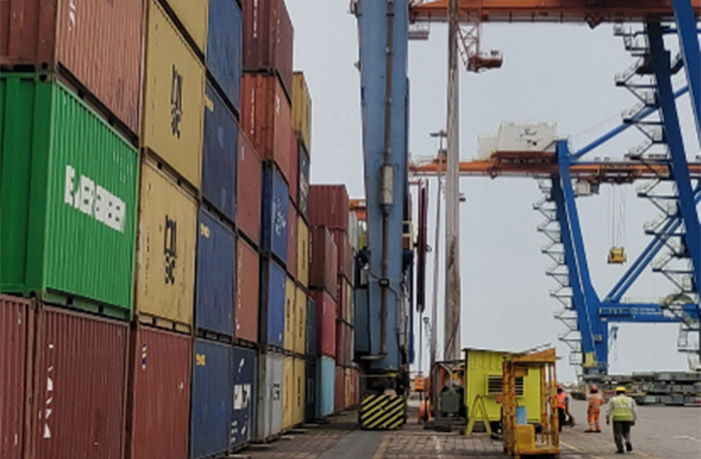
RTGC 3 CONVERTED TO E RTGC
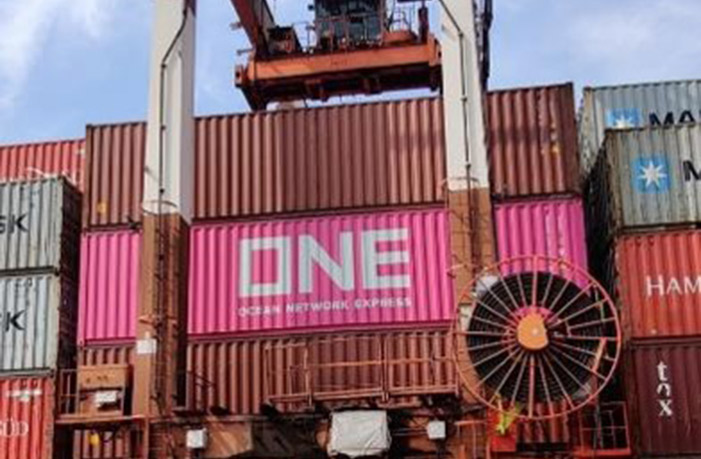
RTGC 2 CONVERTED TO E RTGC
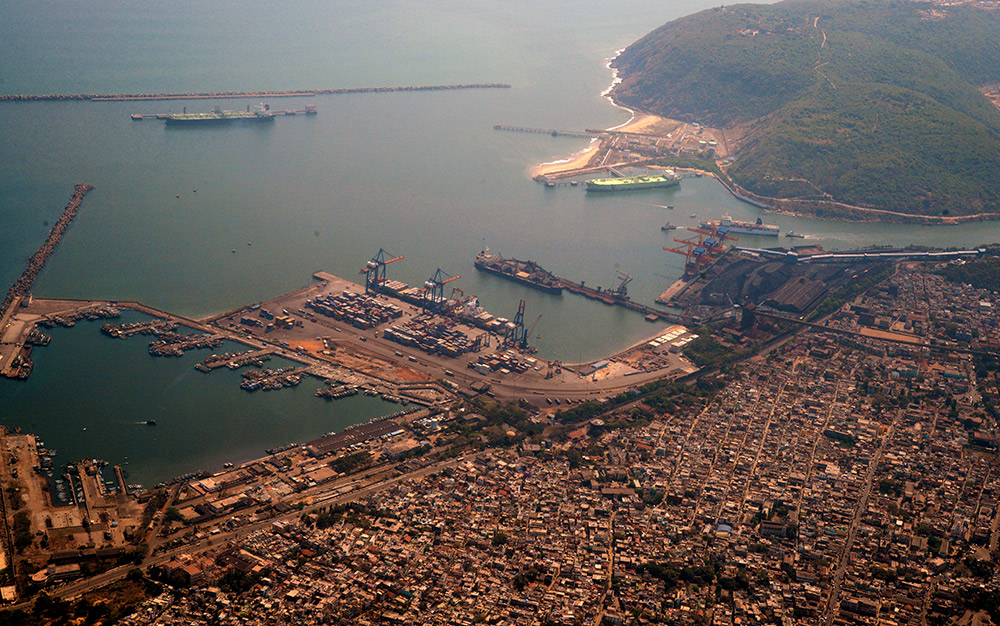
BIRDS EYE VIEW OF VCT